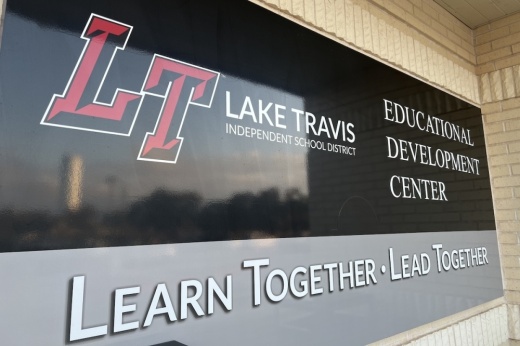This decision comes in the wake of districtwide staffing shortages and inflation, prompting the district’s decision to increase teacher and staff salaries in recent meetings. Additionally, unadjusted state funding rates per student force the district to provide for more students while having fewer resources, board President John Aoueille said.
“We have to educate every child that comes into our doors, and yet we have a very fixed income,” Aoueille said. “We are adopting this $2.9 million deficit because we feel we need to have an enriched environment to teach our kids.”
The total revenue for the district is anticipated to equal $173.9 million, while expenditures are set to come out to $176.9 million. Included in expenditures is the district’s recapture payment to the state, which totals over $69 million, up from $47 million in FY 2021-22.
The debt service fund is expecting revenue to equal $60.3 million and expenditures to go to $56.8 million. Similarly, food service fund revenue is estimated at $6.4 million, while expenditures are $5.9 million.
The district’s budget assumes an enrollment of 11,898 students for 2022-23, compared to 11,345 in 2021-22. The per-pupil allotment for the district was $6,160 in FY 2021-22, and this is expected to remain the same for FY 2022-23, according to the district.
The interest and sinking tax rate, or I&S, is anticipated to remain the same at $0.3275, while the maintenance and operation tax rate, or M&O, will go from $0.9026 to $0.8846. I&S covers debt service for voter-approved bonds and is not subject to recapture by the state, while M&O covers the general budget and is subject to recapture.
“This is the first time I have seen a deficit like this, and it’s because things are dire,” Aoueille said. “We do need people to drive our buses; we need people to serve food. We need people to serve at our district. So we are going to dip into our fund balance to take care of this.”
The board is making this decision because the district's fund balance is healthy enough to handle the deficit for a few years, Aoueille said. For the long term, however, dipping into the fund balance is unsustainable, he said.
Additionally, while taxes may be going up, board member Bob Dorsett said he wants to make sure people know the difference between a tax increase and a tax rate increase. Property taxes will be going up due to the increasing value of property; however, that is not a result of the district raising the tax rate, he said.
Dissecting recapture
Schools receive a set amount of money for each student enrolled in the district, which is determined by a funding formula calculated by the state. This basic allotment per student has been at $6,160 for the past two years, unadjusted for inflation or rising local property values, according to the district.
“We only get to keep the same amount of money [from local taxes], and yet we’re trying to educate in a much more expensive environment, and we’re trying to pay our staff to live in a time that is much more expensive,” board member Lauren White said. “At the same time, a lot of our taxpayers are seeing higher expenses, and I think a lot of them still think the dollars stay here.”
The district collects taxes from homeowners to fund operations. The district is permitted to keep only a certain amount of these funds, determined by what the state calls Tier I entitlements, which include the basic operating expenses of the district and its programs.
Beyond the amount needed for basic operations, the remainder of taxes collected from homeowners go from the district to the state through a process called recapture. This program, dubbed the “Robin Hood” plan, is supposed to take excess revenue from wealthier districts and redistribute it to districts unable to meet their operating expenses through local tax collection.
The problem is that there is no accountability in the recapture process, White said. Excess funds from districts subject to recapture go to the state’s general fund, and it is unknown exactly what the funds are used for, she said.
The district’s recapture payment for 2022-23 is projected to increase by $21.9 million, or 46.6%. This reflects 42.7% of every dollar the district collects for Tier 1 entitlements going to the state, according to the district.
“That bothers me, because we’re collecting it; it comes in under our name; and then we can’t provide the community with the transparency about where the money is going, what it’s being used for and if it’s being used wisely,” White said.
White advocated for a change to the basic allotment for the upcoming legislative session, which runs from January-May in 2023. The state is looking at a $27 billion surplus from economic growth coming out of the pandemic, and White said the community should ask for an increase to the basic allotment that is adjusted for inflation and the cost of living.
“The way recapture is set up, and the way basic allotment is right now, is going to impede our ability to educate students effectively,” White said. “We should all be asking for an increase to the basic allotment [from the Texas Legislature] ... that would allow our district to keep the dollars locally that we need to ensure student outcomes we want for our students.”





